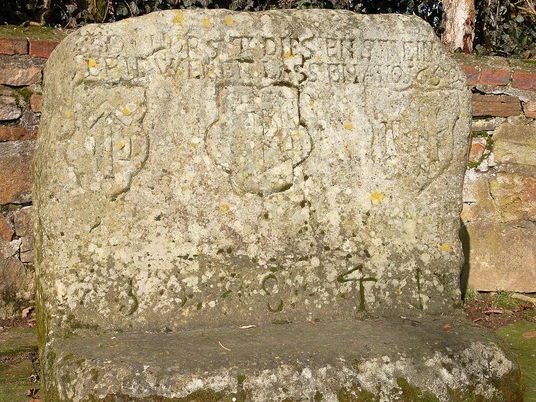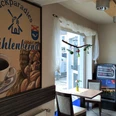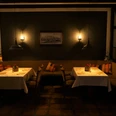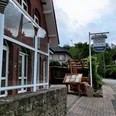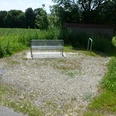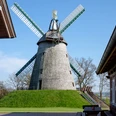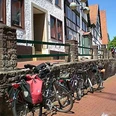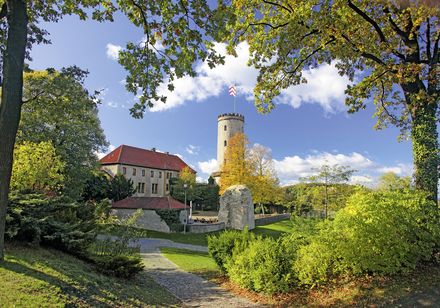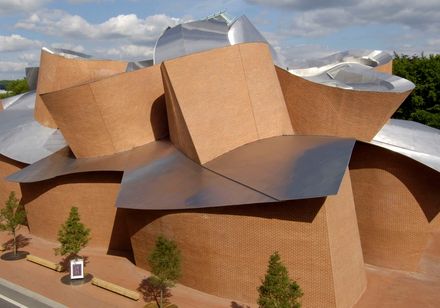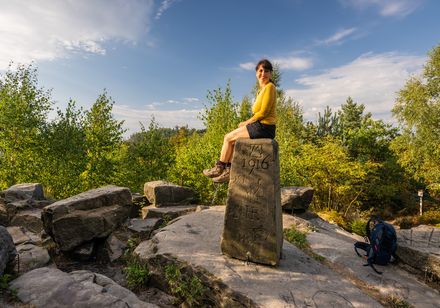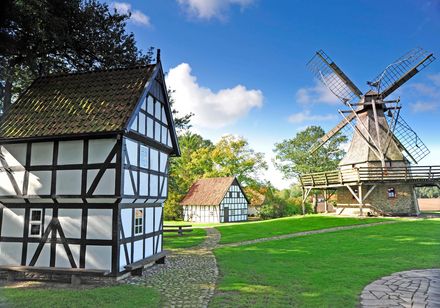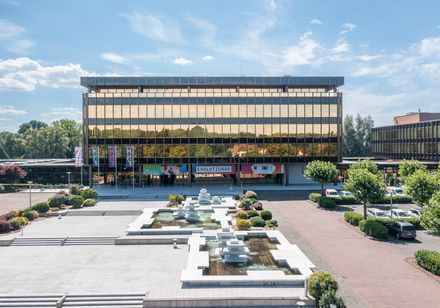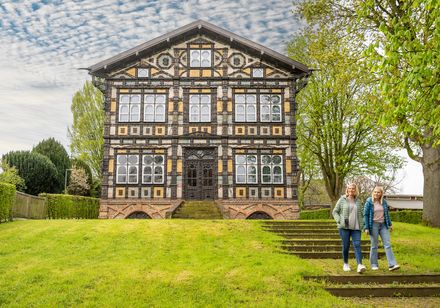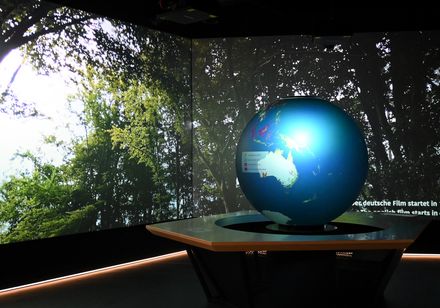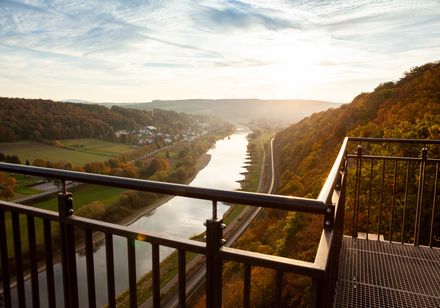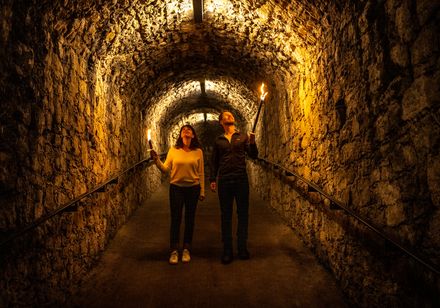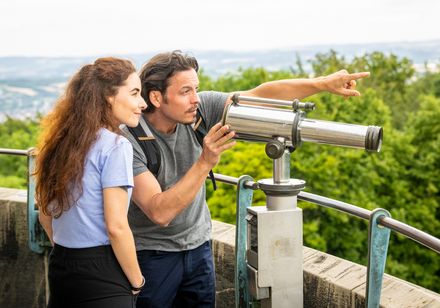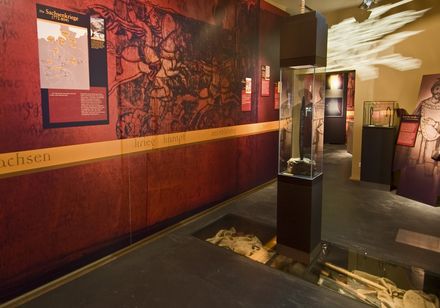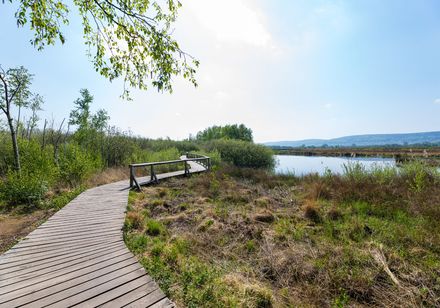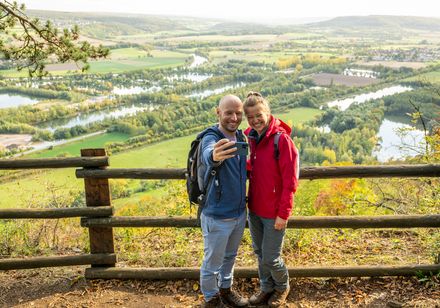The Wittekindstein, which is a listed building, is a sandstone shaped like an armchair.
According to legend, Charlemagne and Wittekind (= Widukind) shook hands in reconciliation over it.
The stone came to light when the Brandenburg land register was drawn up in 1685. Today's Hof Detering, on whose land the stone now stands, was known as "Hartog am Stein" at the time. The historian Leopold von Ledebur reported in 1825 that, according to local stories, "Wittekind the Great" (= Widukind) had sat on it and the stone was erected in his memory at the place where it was found.
Another theory about the history of the stone is given by the exter pastor Lohmeyer in 1854 in his local chronicle. He states that, according to official opinion (for example the Royal Government of Minden), it was a so-called "Freigerichtsstuhl". The stone is marked with the house signs of Herford aldermen's families, among other things, from which it can be concluded that it is an old court stone from the Middle Ages.
The true history will probably remain in the dark for some time to come. Further research is required here.
The Wittekindstein now stands somewhat inconspicuously on the edge of a side street. Until the construction of the Herford road from Exter to Vlotho in 1877, things were different, as the Hellweg, the main road between Vlotho and Herford, ran along today's Wittekindstraße for centuries.
According to legend, Charlemagne and Wittekind (= Widukind) shook hands in reconciliation over it.
The stone came to light when the Brandenburg land register was drawn up in 1685. Today's Hof Detering, on whose land the stone now stands, was known as "Hartog am Stein" at the time. The historian Leopold von Ledebur reported in 1825 that, according to local stories, "Wittekind the Great" (= Widukind) had sat on it and the stone was erected in his memory at the place where it was found.
Another theory about the history of the stone is given by the exter pastor Lohmeyer in 1854 in his local chronicle. He states that, according to official opinion (for example the Royal Government of Minden), it was a so-called "Freigerichtsstuhl". The stone is marked with the house signs of Herford aldermen's families, among other things, from which it can be concluded that it is an old court stone from the Middle Ages.
The true history will probably remain in the dark for some time to come. Further research is required here.
The Wittekindstein now stands somewhat inconspicuously on the edge of a side street. Until the construction of the Herford road from Exter to Vlotho in 1877, things were different, as the Hellweg, the main road between Vlotho and Herford, ran along today's Wittekindstraße for centuries.
Good to know
General information
Parking Available
Eligibility
for Groups
for Class
for families
for individual guests
Pet allowed
Suitable for the Elderly
Payment methods
Entrance Free
Directions & Parking facilities
The Wittekindstein is located in the district of Exter.
Contact person
License (master data)
Vlotho Marketing GmbH
Nearby

